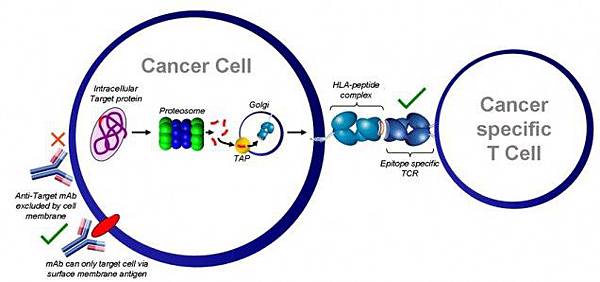
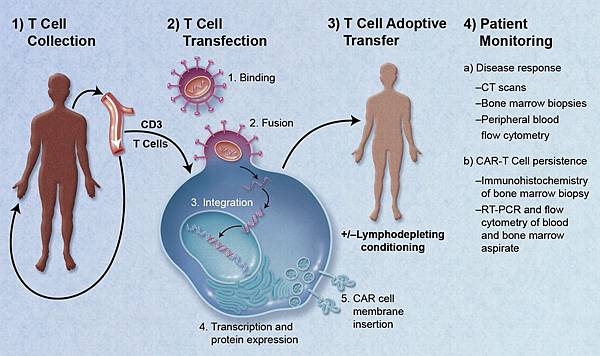
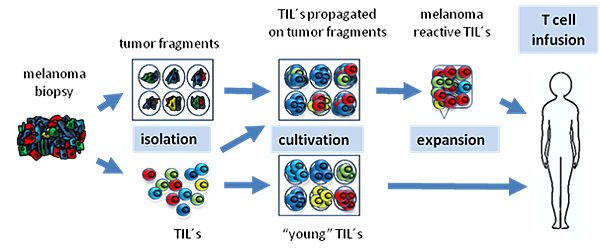
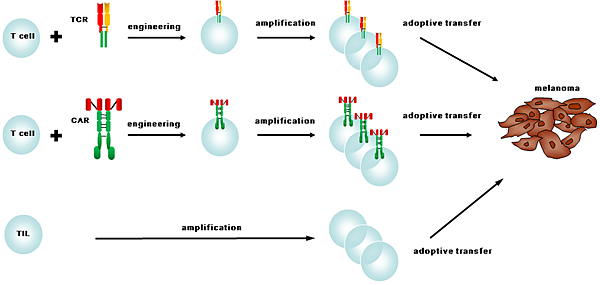
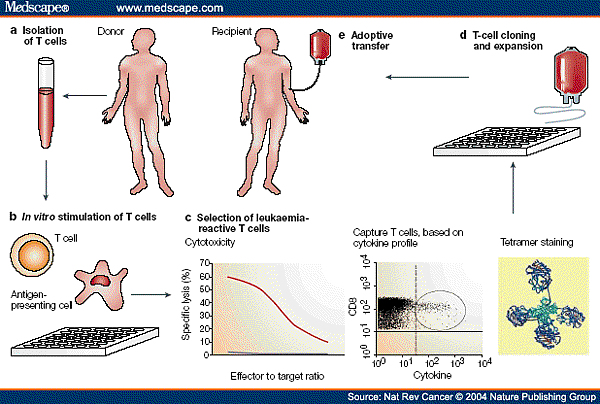
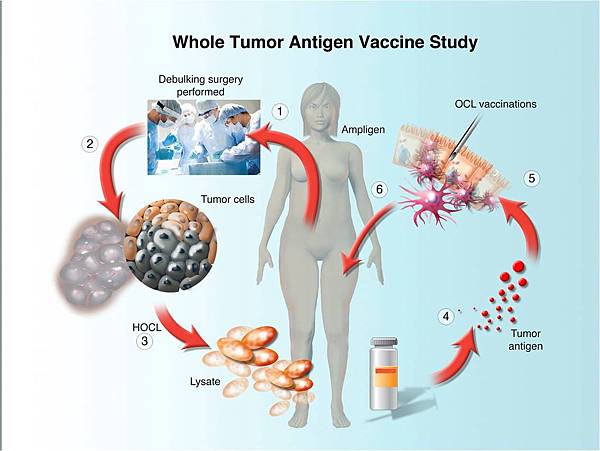
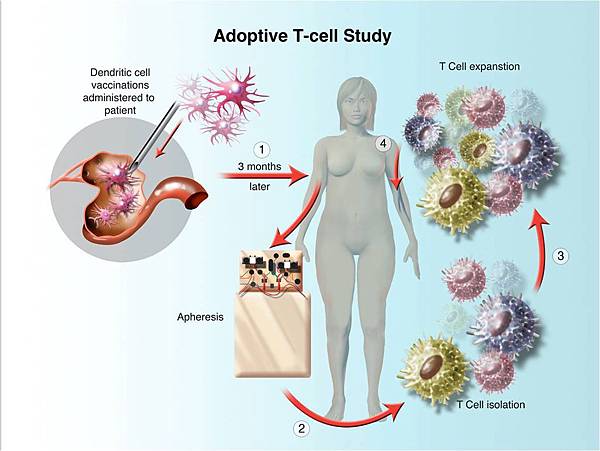
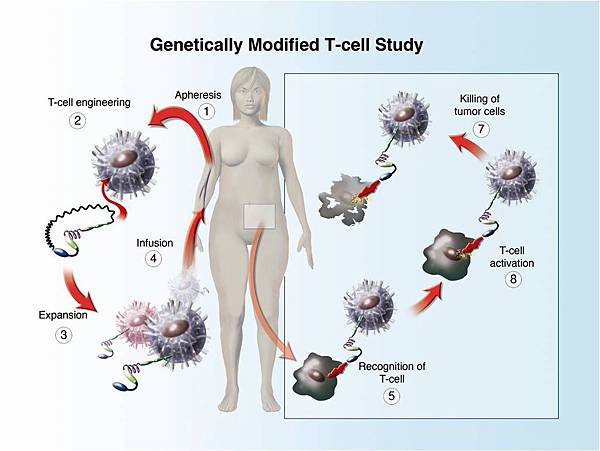
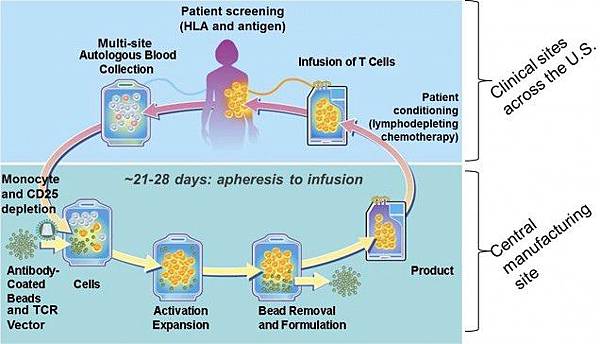
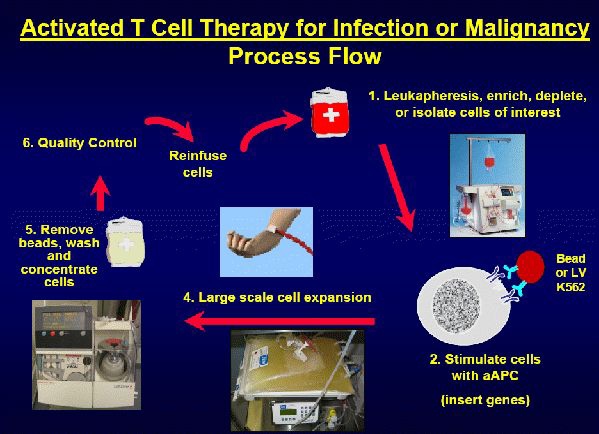

Adoptive T Cell Therapy
Adoptive T cell therapy involves the isolation and ex vivo expansion of tumor specific T cells to achieve greater number of T cells than what could be obtained by vaccination alone.
The tumor specific T cells are then infused into patients with cancer in an attempt to give their immune system the ability to overwhelm remaining tumor via T cells which can attack and kill cancer.
There are many forms of adoptive T cell therapy being used for cancer treatment; culturing tumor infiltrating lymphocytes or TIL, isolating and expanding one particular T cell or clone, and even using T cells that have been engineered to potently recognize and attack tumors.
One approach has been to utilize T cells taken directly from the patient’s blood after they have received a cancer vaccine.
A unique aspect to adoptive T cell therapy is the use of tumor specific CD4+ Th1 cells which may enhance anti-tumor efficacy.
Adoptive T cell therapy strategies have largely focused on the infusion of tumor antigen specific cytotoxic T cells(CTL)which can directly kill tumor cells. However, CD4+ Th cells have a broader functionality. Th can activate antigen-specific effector cells and recruit cells of the innate immune system such as macrophages and dendritic cells to assist in antigen presentation(APC). Moreover, antigen primed Th cells can directly activate tumor antigen-specific CTL. In addition to direct contact, Th can activate CTL through cytokines such as IL-2 which stimulate the growth and expansion of effector T cells. In addition, Th1 induce the production of opsonizing antibodies that enhance the uptake of tumor cells into APC. These activated APC can then directly present tumor antigens to T cells.
As a direct result of activating APC, antigen specific Th1 have been implicated as the initiators of epitope or determinant spreading which is a broadening of immunity to other antigens in the tumor. The phenomenon of epitope spreading has been linked with a survival benefit after immunotherapy in patients with melanoma and breast cancer. The ability to elicit epitope spreading broadens the immune response to many potential antigens in the tumor and presumably would result in more efficient tumor cell kill due to the ability to mount a heterogeneic response. In this way, adoptive T cell therapy can used to stimulate endogenous immunity.



 留言列表
留言列表
